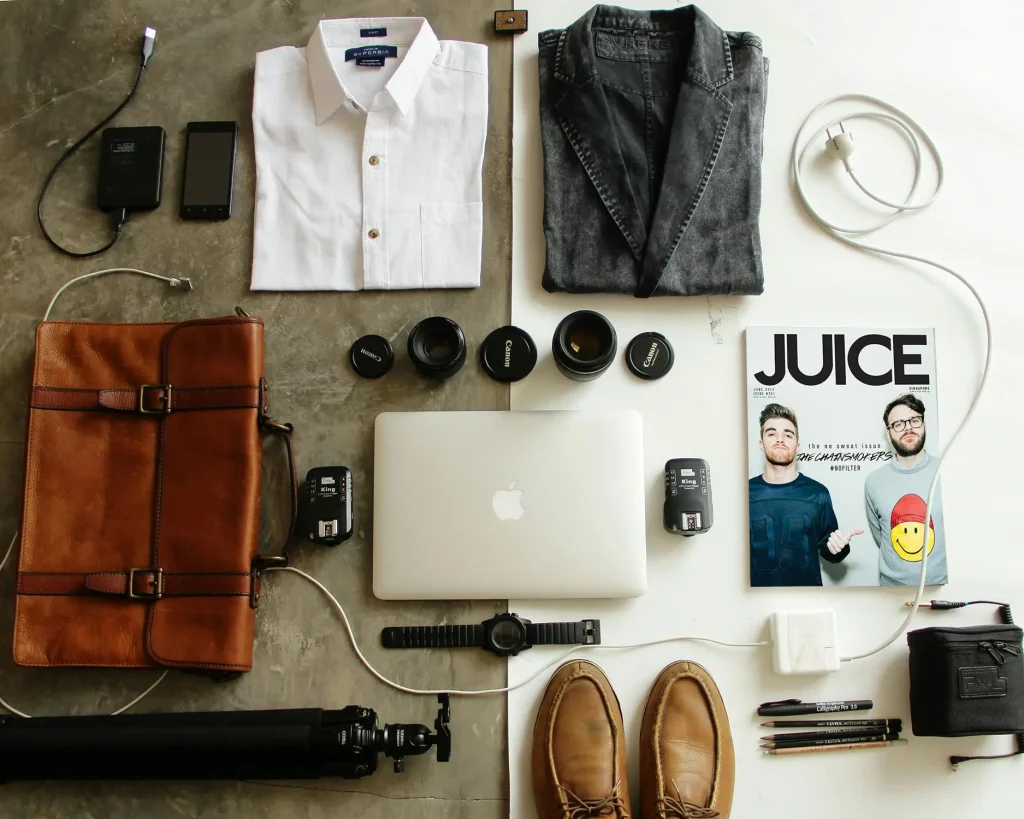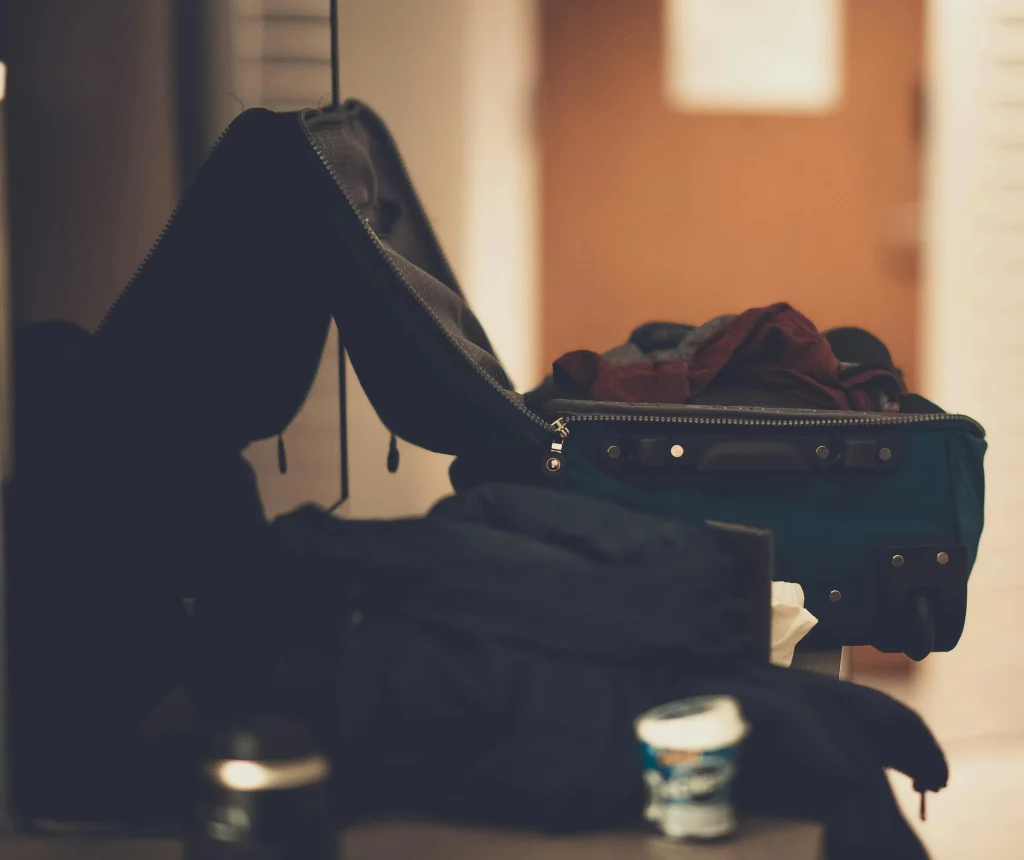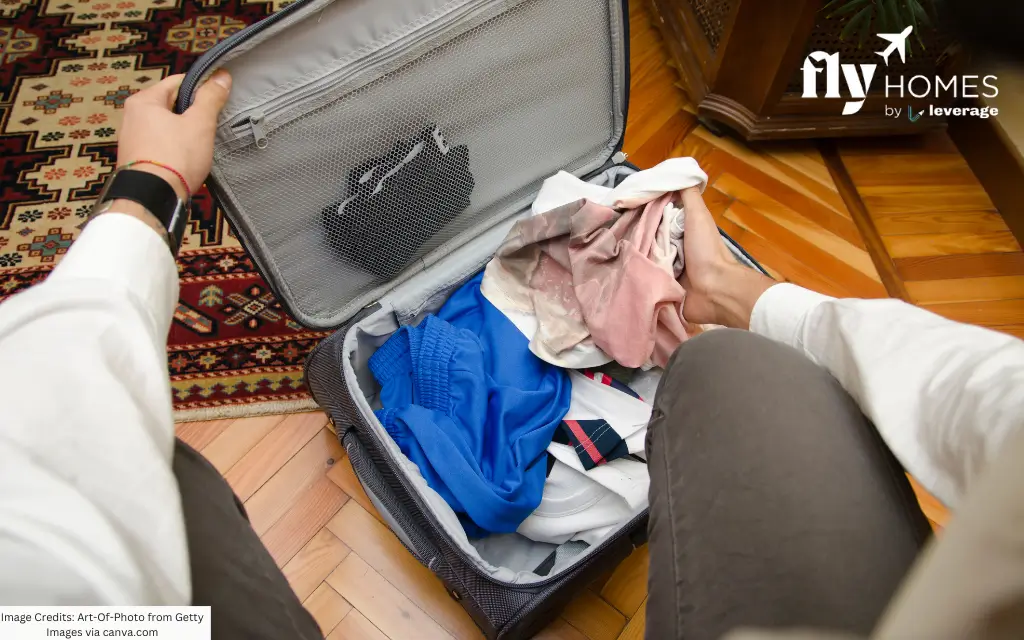Pros and Cons of Self-Packing: Moving abroad for education is an exciting yet challenging experience. Among the many tasks on a student’s pre-departure checklist, packing stands out as both crucial and stressful. Self-packing—the process of organising, selecting, and packing your belongings without professional help—is a common choice for many students. While it offers control and cost savings, it also comes with its own set of challenges. This blog delves into the pros and cons of self-packing, offering insights tailored to students preparing to study abroad.
Table of contents
Why Self-Packing is a Big Decision?
Packing for an extended stay abroad is no ordinary task. The items you pack will directly impact your comfort, convenience, and ability to adapt to a new environment. You need to pack all the university essentials that will be required in the long run for your stay in a foreign country.
Choosing to pack on your own might seem straightforward, but it’s a decision that requires careful thought. On one hand, it gives you full control over your belongings. On the other, it demands time, effort, and organisational skills. Understanding the benefits and drawbacks of self-packing can help you make an informed choice and reduce pre-departure stress.
Pros of Self-Packing

Self-packing allows students complete control over what they bring, ensuring their luggage reflects their personal needs and priorities. It is a cost-effective option that eliminates the expense of hiring professional packers.
It also offers an opportunity to declutter and stay organised. The process of self-packing helps students develop essential skills such as planning, prioritising, and problem-solving, which are valuable for independent living abroad.
Cost-Effectiveness
One of the most compelling reasons students choose to self-pack is the cost savings. Hiring professional packers or movers can be expensive, especially when preparing for an international move. By handling the packing yourself, you eliminate labour charges and avoid additional fees for packing materials like boxes and bubble wrap.
As a student, every dollar counts. Saving money on packing means you can allocate those funds toward more pressing needs, such as tuition, accommodation, or travel expenses. Self-packing is a budget-friendly way to prepare for your journey without compromising on essentials.
Personal Control
Self-packing gives you complete control over what goes into your suitcase or shipping boxes. You’re the best judge of what items are essential for your lifestyle, studies, and comfort abroad. This control allows you to pack strategically, ensuring that your priorities are met.
For instance, you can decide to pack sentimental items that remind you of home or specific study materials you might not find in your destination country. Professional packers might not understand your preferences as well as you do, making self-packing a more personalised option.
Organisational Benefits
When you pack your belongings yourself, you gain a clear understanding of where everything is. This knowledge makes unpacking at your destination much easier. Instead of rummaging through boxes or suitcases, you’ll know exactly where to find each item.
Additionally, self-packing is an excellent opportunity to declutter. As you decide what to take, you’ll naturally assess which items are truly necessary. This process can be cathartic, helping you start your study-abroad journey with a lighter load and a clearer mindset.
Developing Skills
Self-packing is more than just a logistical task; it’s a valuable learning experience. It teaches you how to prioritise, organise, and make decisions under constraints. These skills are essential for independent living, a core aspect of studying abroad.
By managing your packing, you’re also preparing yourself for the challenges of living alone in a new country. The confidence and resourcefulness you gain during this process will serve you well in other aspects of your journey.
Also Read:
Cons of Self-Packing

Self-packing can be time-consuming and stressful, especially for students managing other pre-departure responsibilities. Without professional expertise, there is a higher risk of improper packing, leading to damaged items or inefficient use of space. You can miss out on important things like your wardrobe essentials.
Navigating airline baggage restrictions and customs regulations adds to the logistical challenges, making the process overwhelming for first-time travellers. Let’s have a look at some of the cons of self-packing.
Time-Consuming
Self-packing requires significant time and effort. From researching baggage policies to selecting, organising, and packing items, the process can take days or even weeks. For students juggling other pre-departure responsibilities like visa applications, financial planning, and farewells, this added burden can feel overwhelming.
Unlike professional packers, who are trained to pack efficiently, students often face trial and error. This learning curve can make the process longer than anticipated, leaving you feeling rushed or stressed as your departure date approaches.
Lack of Expertise
Professional packers have the experience to pack items securely and efficiently, minimising the risk of damage during transit. When you pack on your own, you may lack the expertise needed to protect fragile or valuable items. Improper packing can lead to broken electronics, damaged souvenirs, or spilled liquids.
Additionally, inexperienced packers often struggle with optimising space. Overpacking or underutilising luggage capacity can result in wasted space, excess weight, or unnecessary fees for overweight baggage.
Logistical Challenges
Navigating airline baggage restrictions and customs regulations is no small feat. Many students unintentionally pack prohibited items or exceed weight limits, resulting in delays, fines, or confiscation of belongings.
Moreover, understanding what is easily available in your destination country can be tricky. You might end up packing items that are unnecessary or forgetting essentials that are hard to find abroad. These logistical challenges can make self-packing a frustrating experience.
Stressful Experience
Packing for an international move can be emotionally and mentally taxing. Deciding what to bring and what to leave behind is often difficult, especially for sentimental items. Balancing practicality with personal preferences can feel overwhelming.
The pressure of packing correctly, combined with the emotional toll of preparing for a major life change, can make self-packing a stressful ordeal. For some students, this added stress might outweigh the benefits of handling the task themselves.
Tips for Effective Self-Packing

To pack effectively, start by researching airline baggage policies and customs regulations to avoid unnecessary fees or prohibited items. Create a checklist of essentials, focusing on versatile clothing, necessary documents, and personal items. Use smart packing techniques like rolling clothes, packing cubes, and vacuum-sealing bulky items to maximise space.
Keep vital items, such as medications and important documents, in your carry-on for easy access. Lastly, seek advice from students who have already studied abroad and tailor your packing to the climate and lifestyle of your destination.
Research and Plan Ahead
- Study Airline Policies: Each airline has specific baggage allowances, size limits, and weight restrictions. Familiarise yourself with these rules to avoid unexpected fees.
- Understand Customs Regulations: Research the customs rules of your destination country to ensure you’re not packing prohibited items.
- Create a Checklist: Make a comprehensive list of what you need to pack. Categorise items into essentials (clothes, documents, medications) and non-essential (decorative items, extra gadgets).
Use Smart Packing Techniques
- Roll Clothes: Rolling clothes instead of folding them saves space and reduces wrinkles.
- Packing Cubes and Vacuum Bags: These tools help organise and compress your belongings, maximising suitcase space.
- Carry-On Essentials: Keep important documents, medications, and a change of clothes in your carry-on luggage for easy access.
Seek Guidance
- Ask Alumni: Reach out to former students who have studied in your destination for packing advice.
- Use Online Resources: Watch YouTube videos or read blogs on packing tips tailored to your destination and needs.
Prioritise Essentials
- Focus on Versatile Items: Pack clothes and accessories that can be mixed and matched for various occasions.
- Consider the Climate: Research the weather conditions in your destination and pack accordingly.
- Think About Availability: Determine what can be easily purchased abroad to avoid overpacking.
Self-packing is a personal and practical choice for students preparing to study abroad. While it offers benefits like cost savings, personal control, and organizational advantages, it also presents challenges such as time constraints, lack of expertise, and added stress.
Also Read:
Ultimately, the decision to self-pack depends on your priorities, resources, and comfort level. By understanding the pros and cons, and following the tips provided, you can make the process smoother and more manageable. Remember, a well-packed bag is the first step toward a successful and exciting journey abroad. For booking the best student accommodation abroad to start your study abroad experience you can contact Fly Homes at 1800572118.
FAQs
Self-packing is cost-effective, gives you full control over your belongings, and allows you to organize your items according to personal preferences.
The main challenges include time management, packing efficiently, ensuring items are secure, and adhering to airline baggage and customs regulations.
By eliminating the need for professional services, students can avoid labour and packing material costs, which is especially important for those on a tight budget.
Self-packing helps develop organisational skills, decision-making, problem-solving, and the ability to prioritise all essential for independent living abroad.
Common mistakes include overpacking, underestimating weight restrictions, packing prohibited items, and failing to protect fragile belongings.
While it can be stressful, careful planning, research, and using smart packing techniques can help ease the process for first-time travellers.
Use packing cubes, vacuum-seal bags, and a well-structured checklist. Rolling clothes and categorizing items also help save space and stay organised.
Focus on essentials like documents, medications, versatile clothing, and study materials, while considering the climate and lifestyle in your destination country.
Yes, you can use a hybrid approach by packing essentials yourself and hiring professionals for bulky or fragile items.
Start by prioritising practical items over sentimental ones. If possible, consider digitising photos or documents and remind yourself that the experience abroad is about creating new memories.
Follow Us on Social Media




























